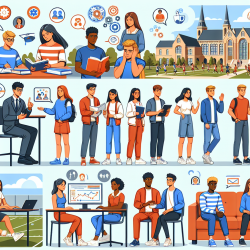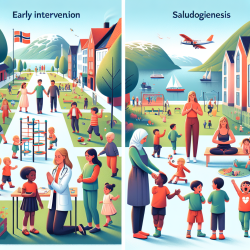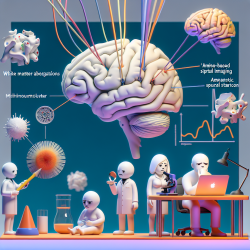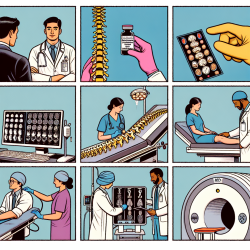Introduction
As practitioners dedicated to enhancing the communication skills of children, we are constantly seeking evidence-based strategies to improve our practice. The recent research article, "Religious Nationalism and the Coronavirus Pandemic: Soul-Sucking Evangelicals and Branch Covidians Make America Sick Again," offers insights that can inform our approach to therapy, especially in understanding how socio-political factors influence public health and education.
Understanding the Research
The study by McLaren (2020) delves into the intersection of religious nationalism and the COVID-19 pandemic in the United States. It highlights how ideological beliefs can impact the acceptance of scientific evidence, which is crucial for practitioners who rely on data-driven methods. The research suggests that evangelical Christianity's ideological underpinnings can hinder the understanding of the virus in a historical and materialist context.
Implications for Practitioners
As speech-language pathologists, we can draw several lessons from this research:
- Promote Critical Thinking: Encourage critical thinking in children by integrating activities that foster inquiry and evidence-based reasoning. This helps them develop skills to evaluate information critically, which is essential in a world where misinformation can spread rapidly.
- Understand Cultural Contexts: Recognize the cultural and ideological contexts of the families you work with. Understanding these contexts can help tailor your approach to be more culturally responsive and effective.
- Advocate for Science-Based Policies: Support policies that prioritize scientific evidence in decision-making processes, especially in education and public health. Advocacy can lead to better resources and support for children in educational settings.
Encouraging Further Research
The research underscores the need for further investigation into how religious and ideological beliefs influence educational outcomes. Practitioners are encouraged to engage in or support research that explores these dynamics, contributing to a more comprehensive understanding of the factors affecting child development and learning.
Conclusion
By integrating the insights from McLaren's research into our practice, we can enhance our ability to make data-driven decisions that lead to positive outcomes for children. Understanding the broader socio-political influences on education and health can empower us to be more effective advocates and practitioners.
To read the original research paper, please follow this link: Religious Nationalism and the Coronavirus Pandemic: Soul-Sucking Evangelicals and Branch Covidians Make America Sick Again.










